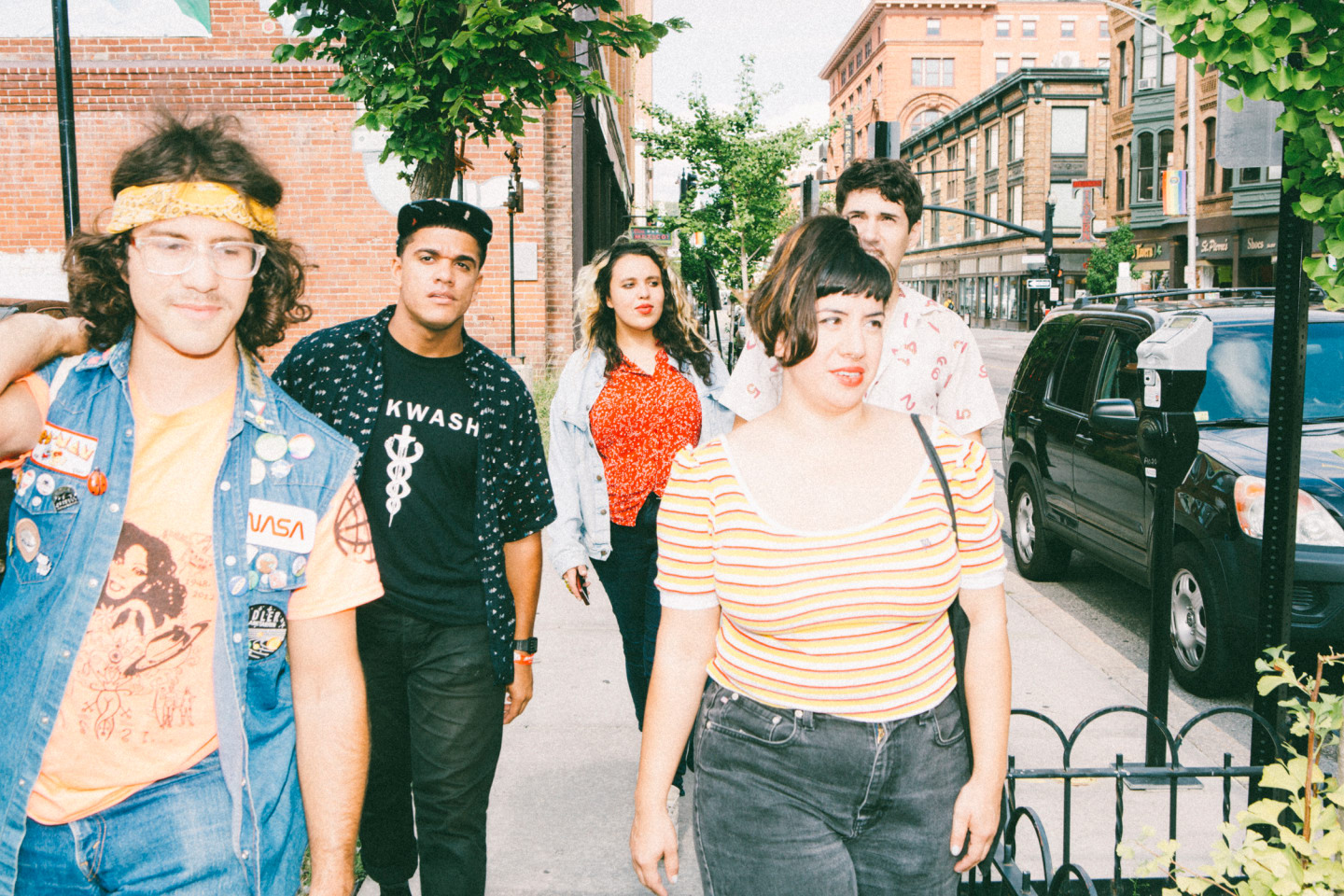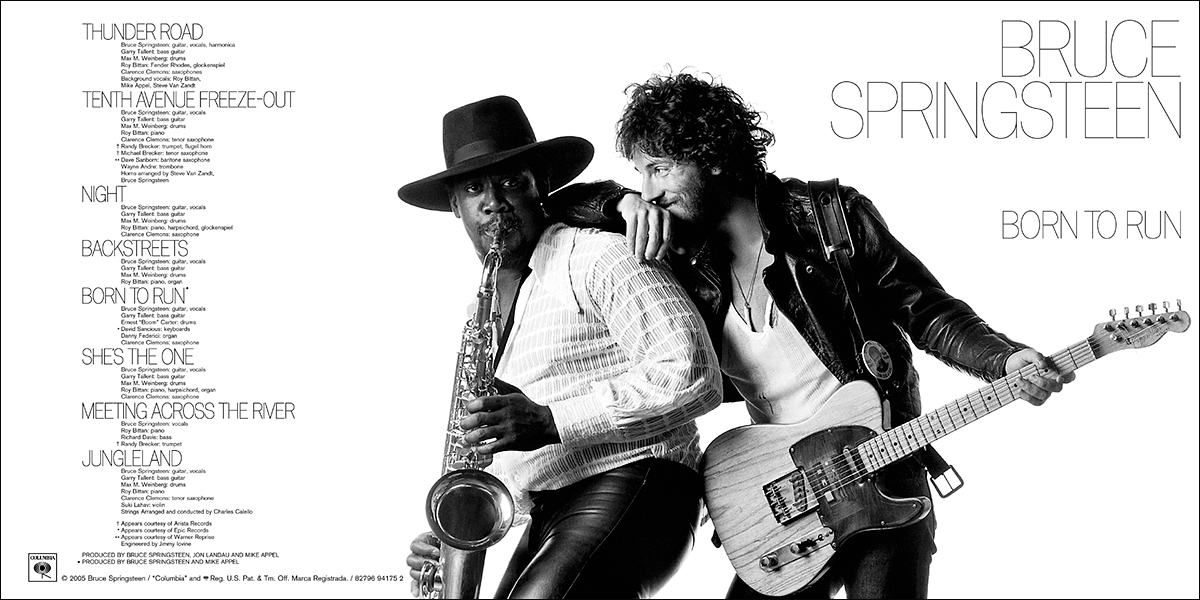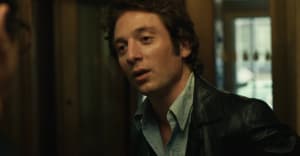 Downtown Boys.
Alexandra Gavillet
/
The FADER
Downtown Boys.
Alexandra Gavillet
/
The FADER
A few weeks ago in Texas, Downtown Boys — fearsome bilingual punks from Providence — played an early afternoon set. It was a sluggish part of the day, the pounding sun pouring down on all the kids trying to shake off last night’s excesses. But Victoria Ruiz, the frontwoman for Downtown Boys, did not have time or interest in easing anyone into anything. As the band pumped behind her with saxophone and drums and full blood, Ruiz hectored and harangued and duly demanded attention. “Las vidas no son bromas,” she chanted again and again, quoting Los Prisioneros, her voice raspy with intent. Later, before the set came to a close, she counseled people to tell their friends not to go on the free pro-Israel trip Birthright.
It was a mesmerizing twenty minutes, and a lovely bit of the explicit intersectional politicization that defines the group. They were born out of activist brass bands, show houses, and protests. They’ve palled around with Amy Goodman on Democracy Now!. Their 2015 full length was called Full Communism. All of which is to say: you maybe wouldn’t expect them to cite Bruce Springsteen as a massive, massive influence.
Post-show, I caught up with Ruiz. Her voice had been run ragged. Her shoulder had been pulled out of place by some wonky stage maneuver. And yet she was still unfailingly polite, making sure I got weird flavored sponsor beer. “So I first really got interested in Bruce through my mom,” Ruiz explained. “She’s Mexican-American and grew up in San Jose, California, with a lot of Asian-Americans, a lot of African-Americans, a lot of Mexican people. We grew up listening to ranchero, to R&B, to disco. And Bruce Springsteen.”
Ruiz’s mother wasn’t into classic rock as a whole, but something about Bruce spoke to her deeply. Born In The USA was her favorite record. When Ruiz showed her how to use Limewire, the first thing she downloaded was more Bruce. Later, Ruiz met Joey La Neve DeFrancesco, the guitarist in Downtown Boys, another Bruce diehard, and decided that what drew him to the music was not that different from what drew her mother to it. “Springsteen very much speaks to this idea of fighting for the working class,” Ruiz said. “And he gets so misinterpreted. Because so many middle-aged white people are obsessed with him.”
There are a lot of elements of Springsteen’s music, Ruiz explains, that have inspired her and Downtown Boys. There’s E Street Band’s legendary saxophonist Clarence Clemons, who passed away in 2011. “It’s hard to have a saxophone player and not be typed as a ska band,” she told me. “Literally watching Clarence shows you how to integrate saxophone into rock music in a real way. And the fact that he was physically bigger than Bruce, but Bruce clearly was the boss, and seeing that power dynamic — it’s beautiful.”
 The cover of Bruce Springsteen's 1975 classic Born To Run.
The cover of Bruce Springsteen's 1975 classic Born To Run.
Then there’s the sheer size of the E Street Band. “His band was too big to fit into a van!” Ruiz said, letting out a full-tooth grin. “It’s completely impractical. And that’s our band. We’re six people in a minivan or even a sedan.”
With her other band Malportado Kids, an electric cumbia project, Ruiz has covered “I’m On Fire.” On Full Communism, Downtown Boys turned in a crazy hopped up version of “Dancing In The Dark.” “We thought, how do we pitch this to Downtown Boys fans? Who don’t really care about Bruce Springsteen because they’re Mexican-American or they’re a person of color?” So Ruiz began touting the subversive qualities of Springsteen’s 80s radio smash. “‘Dancing In The Dark’ is all about desiring darkness to feel free in. And I think that people of color, who are dark, we feel the word so often comes off as negative: it’s associated with death, or the antagonist. That reclaiming of the word ‘dark’ — I think it really works for Downtown Boys.”
Ruiz caught Springsteen on his most recent tour, at a hockey stadium in Connecticut. “I paid over half of what I paid in rent that month to go to one show,” she said. “There was one other person of color. A woman. And literally, in this stadium with 17,000 people, she came up to me and gave me a high five. And that meant a lot.”
The whiteness of Bruce’s audience is not something Ruiz blames him for personally. In fact, she sees it as inspiration that despite “the misinterpretation” that has unfairly pegged him as an anodyne dad rocker, he “continues to fight” for a true exploration of classism and blue-collar pain and angst and ennui. “Having to live with that sort of contrast in your art is so hard. He just does it so well.”
To explain how Springsteen fits into her own personal story as a Mexican-American, Ruiz pointed to an iconic line from Born To Run's “Thunder Road." “'The door’s open but the ride ain’t free' — I think that is, like, truly the most magical idea. My grandma, she was a farm worker and never learned how to read or write. But she very much opened those doors for me. Doors she never had opened for herself. You feel that idea: ‘Oh, maybe I should walk through this, as hard as it may be.’”
Before we wrap up our chat, I point out to Ruiz how Springsteen has been generous in playing with and spotlighting bands like The Gaslight Anthem and The Hold Steady and other acts (mostly white) that have grown up on his outsized influence. “Oh, trust me!” she cuts in, excitedly. “I have asked Amy Goodman, who I know he likes, to give him a CD for me. I’ve given Tom Morello” — who’s co-signed Downtown Boys, and played with the E Street Band — “a CD to give Bruce Springsteen. I have given every person that could possibly meet him, like, a very clear message.”
And if that day did come, I ask? If you found yourself on the same stage, or in the same room, as The Boss, is there anything you’d want to say to him? Ruiz doesn’t hesitate. “I think I would ask him if he had any advice.”
 Downtown Boys.
Alexandra Gavillet
/
The FADER
Downtown Boys.
Alexandra Gavillet
/
The FADER
